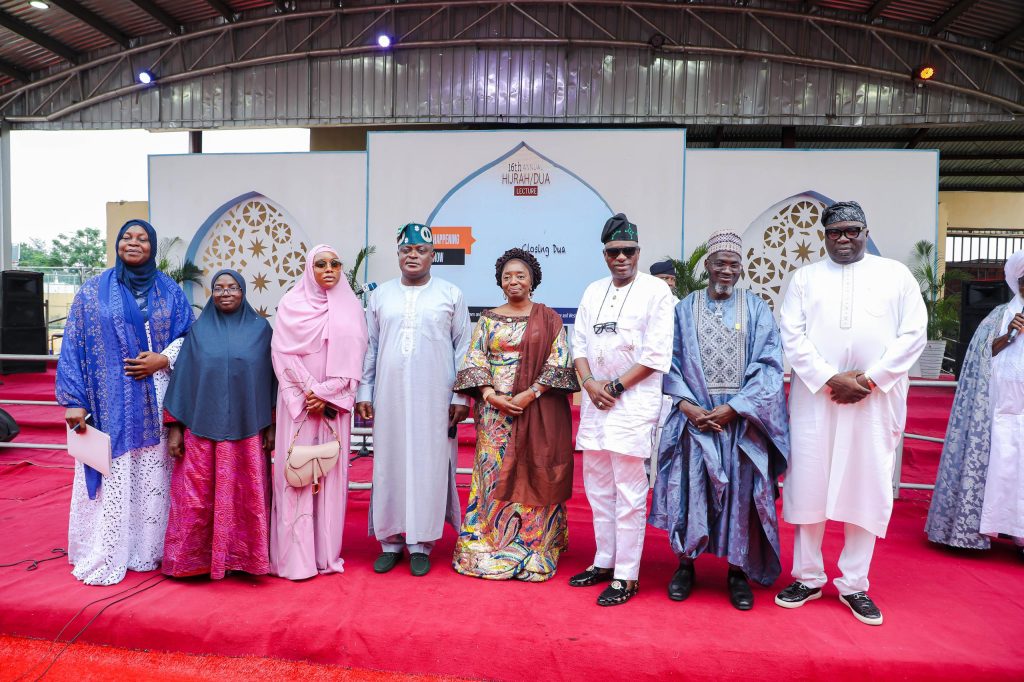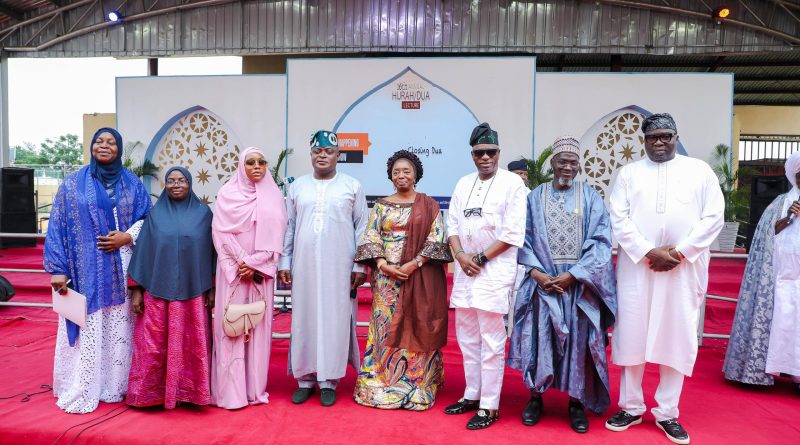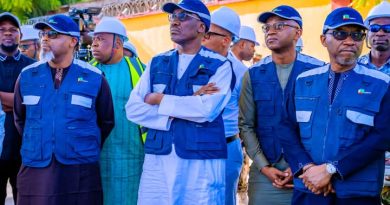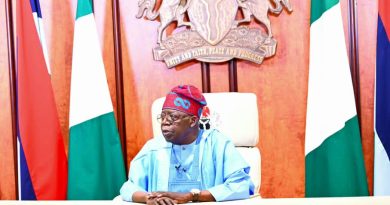Obasa Urges Protection For Muslim Women As Pillars Of Societal Reform
Considering the influence of Western civilisation on Islamic culture and practices, Speaker of the Lagos State House of Assembly, Rt. Hon. Mudashiru Obasa has advocated for more support and protection for Muslim women because of their critical roles in shaping society.
Speaking at the 16th Hijrah Lecture of the House of Assembly held Wednesday at the Assembly Pavillion with theme: “The Muslim Women and Societal Reformation: Balancing Between Islamic Culture and Western Civilization,” Obasa said that in balancing the complexities of the rich Islamic culture, traditions, and practices with the influences of Western civilization,
“It is essential to recognise that both can co-exist harmoniously without losing our Islamic identity and values. It is the compromise of these values that has led to disruptions in many homes where children are growing up with perverted values.”
He added that “Without good mothers, humanity is doomed.”Conversely, Speaker Obasa declared that women in Islam are highly revered for their invaluable and influential roles in society, which go beyond mere child-bearing and raising, nurturing, and moulding children to live worthy and successful lives.

“Figures like Ilhan Omar, a U.S. Congresswoman, and Malala Yousafzai, a global advocate for education, exemplify how Muslim women blend their Islamic identity with contributions to global society. They challenge the notion that faith and modernity are mutually exclusive while demonstrating that one can uphold Islamic values while championing universal human rights,” he said.
Drawing a parallel between socio-economic pressures and cultural disconnection that have pushed some women to engage in social vices like prostitution, drug-peddling, and abuse, Obasa said that women are not solely responsible for the current moral challenges being experienced but they have a profound and irreplaceable role in reversing them.
According to the Speaker, “The history of Islam has a noble place for women where they played remarkable roles in the success of the Islamic state,” he said, adding, “The Prophet Muhammad (SAW) in one of his hadiths said that paradise lies beneath the feet of the mother.”
He further quoted the Prophet Muhammad (SAW) as saying, “If the society is good, we should look at the women, it is good because the women are good. But if society is bad, then we should also look at the women.”
In safeguarding and strengthening women’s and children’s rights, the Speaker referenced several laws enacted by the House of Assembly against domestic and sexual violence including the establishment of sexual violence response desks in all local government areas, the domestication of the Child Rights Act, and the Protection Against Domestic Violence Law (PADVL) 2007, which made Lagos the first state in Nigeria to pass a domestic violence–specific law that provides for protection orders (restraining orders) for victims of domestic violence.
“These laws aren’t mere paperwork — they are shields for our wives, daughters, and children,” Obasa stated, adding, “We must enforce them and ensure that women are empowered to carry out their roles in family and society.”
Like Speaker Obasa, the guest lecturer, Prof. (Mrs.) Jameelah Yaqub, a Professor of Economics at the Lagos State University, decried the increasing cases of prostitution and drug addiction among young women, saying that society is paying a premium for the pervasive decadence.
She also spoke extensively on the role of women in nation-building through proper parenting and moral upbringing because “When you train a woman, you train a nation.”
Also, she went on, “Women are reformation agents, and they should start from home. In the past, muslim women were responsible and concerned about taking care of their families. With civilisation, however, things changed, and taking care of the family is no longer pivotal.”
Prof. Yaqub implored muslim women to see the home as their primary responsibility, know what is happening to their children, and take time off to take care of the family.
The second lecturer, Prof Abdulrahman Alaro, mni, urged muslim women not to get carried away or prioritise earthly gains for their eternal reward but to focus on legacy and values.
In his welcome address, the chairman of the occasion, Hon Nureni Akinsanya, noted, “In this era of globalization, Muslim women face numerous challenges as they navigate the complexities of modern society.
“They are, however, expected to uphold the values of their faith while contributing to the development of their various communities. This lecture aims to explore the role of Muslim women in societal reformation, highlighting the importance of balancing Islamic culture with the influences of Western civilization.
“Our goal is to empower Muslim women to become agents of positive change in their communities, leveraging their unique strengths and abilities to promote a more just and compassionate society,” he stated.
The event was graced by the First Lady of Lagos State, Dr (Mrs) Ibijoke Sanwo-Olu; Dr. Tajudeen Afolabi, the Governor’s Special Adviser on Civic Engagement, who represented Governor Babajide Sanwo-Olu; some members of the Governing Advisory Council (GAC); members of the State Assembly; Lagos State White Cap Chiefs, representing Ọba of Lagos, HRM Oba Rilwan Akiolu as well as leading Islamic and traditional leaders.




